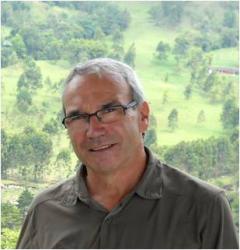In 2013 the Global Earthquake Model (GEM) –www.globalquakemodel.org – published seven Requests for Proposal covering topics related to the compilation of basic datasets as well as the creation and calculation of an updated probabilistic seismic hazard input model for South America. This initiative is now named the South America Risk Assessment Project (SARA).
Five consortia of South American researchers responded to this request and submitted proposals for the Hazard Component of SARA. These proposals has been recently endorsed by GEM and will constitute different datasets or topic layers for SARA. They include databases on historical and instrumental seismicity, hazardous faults (Quaternary deformation), tectonic geodesy and ground motions.
State-of-the-art Probabilistic Seismic Hazard input models must include to the largest extent possible fault sources. So, the creation of a fault-based PSHA input model requires integration of existing fault data into a unified framework. However, in much of the world, as well as in South America, seismicity is distributed over regions where active/hazardous faults have been already identified, but the current information related to these tectonic structures or the format used for its compilation is not suitable for the PSHA modeling. The goal of SARA Topic 2 is the collection and harmonization of available hazard-related information related to crustal neotectonic structures in continental South America, which are or could be considered as potential seismogenic sources of social/engineering concern. It is intended to build uniform standards for structure compilation along the variate tectonic settings of South America through a GIS-based multiparameter approach for estimating activity and hazard.
The starting point will be the existing set of inventories on Quaternary deformation in the region and in particular: the “World Map of major active faults project – ILP-II2” and the “Multinational Andean project – PMA”.
The information in these databases will be updated and upgraded through a collaborative effort among specialists and working groups in the region, which will involve colleagues from Argentina, Bolivia, Brazil, Chile, Colombia, Ecuador, Peru, Uruguay and Venezuela. The resulting database will constitute a free-access dataset, available on Internet.
The first Workshop of the SARA Topic 2 Project will be held in Santiago, Chile in November 2014.
More info with Carlos Costa (Project Coordinator)
costa@unsl.edu.ar



No Comments
No comments yet.